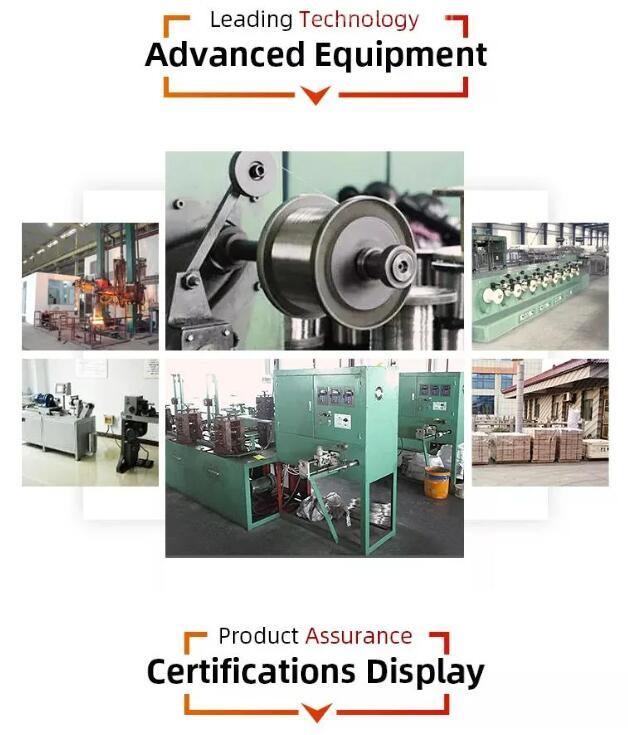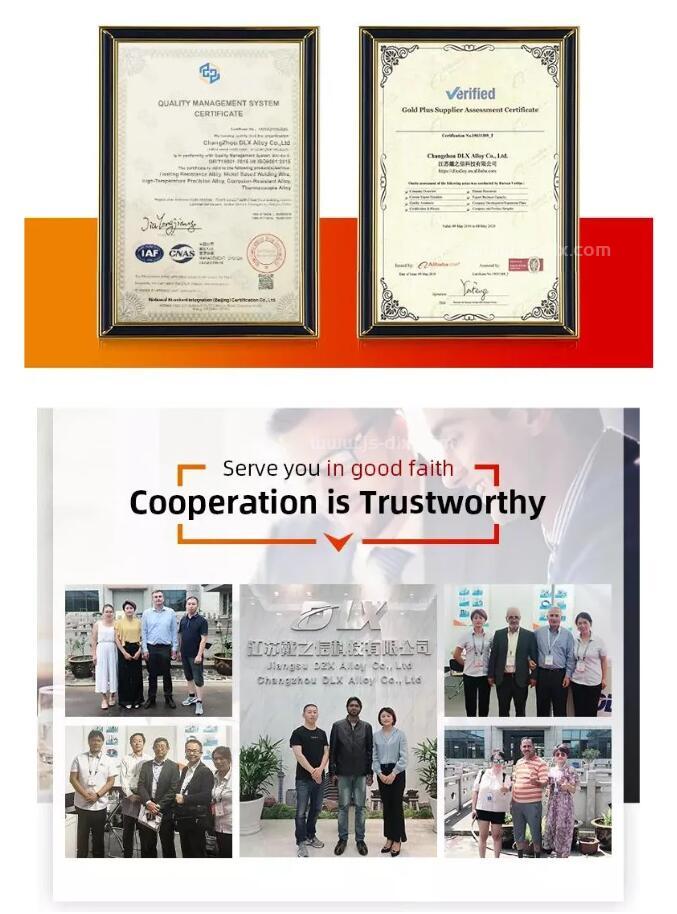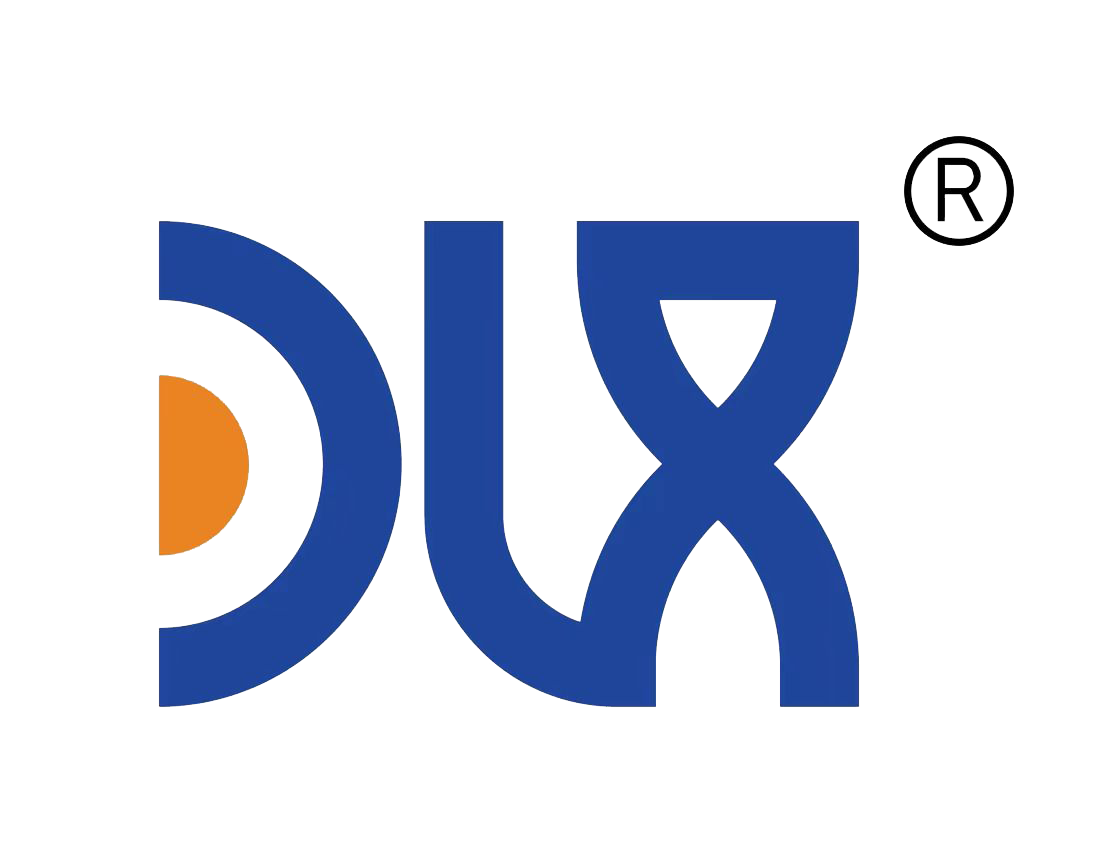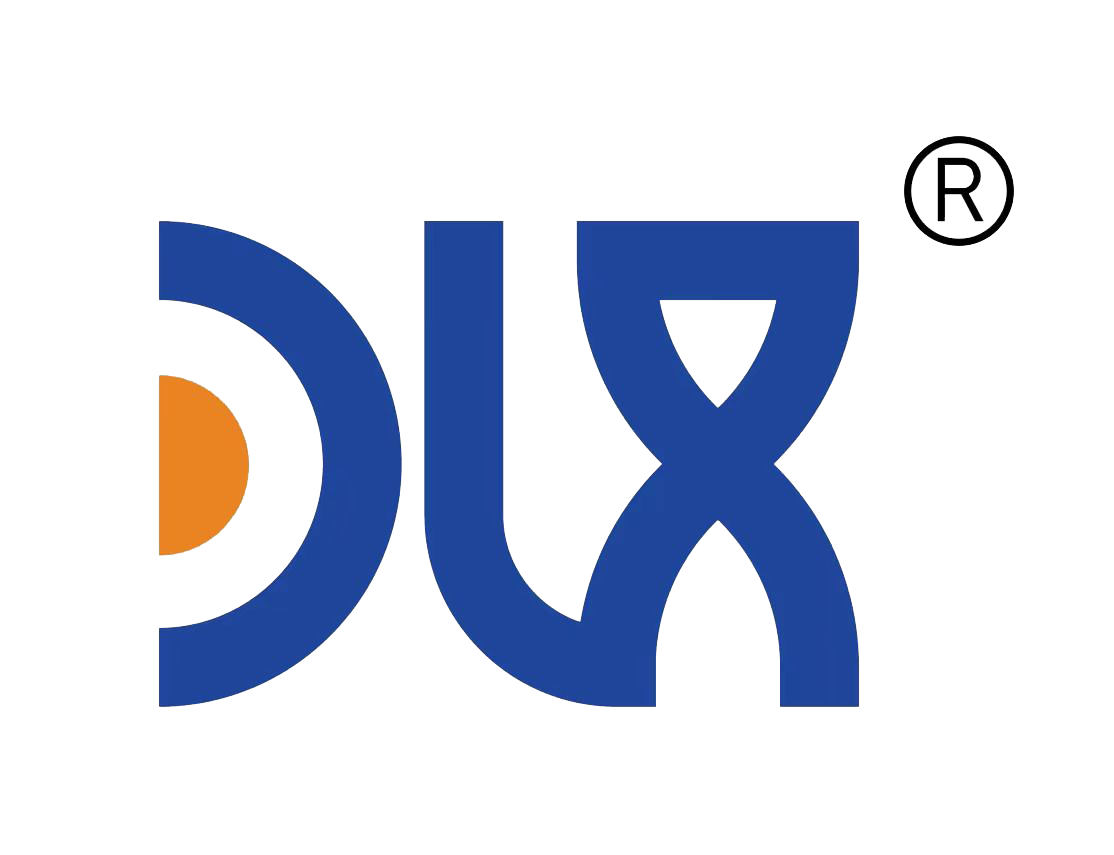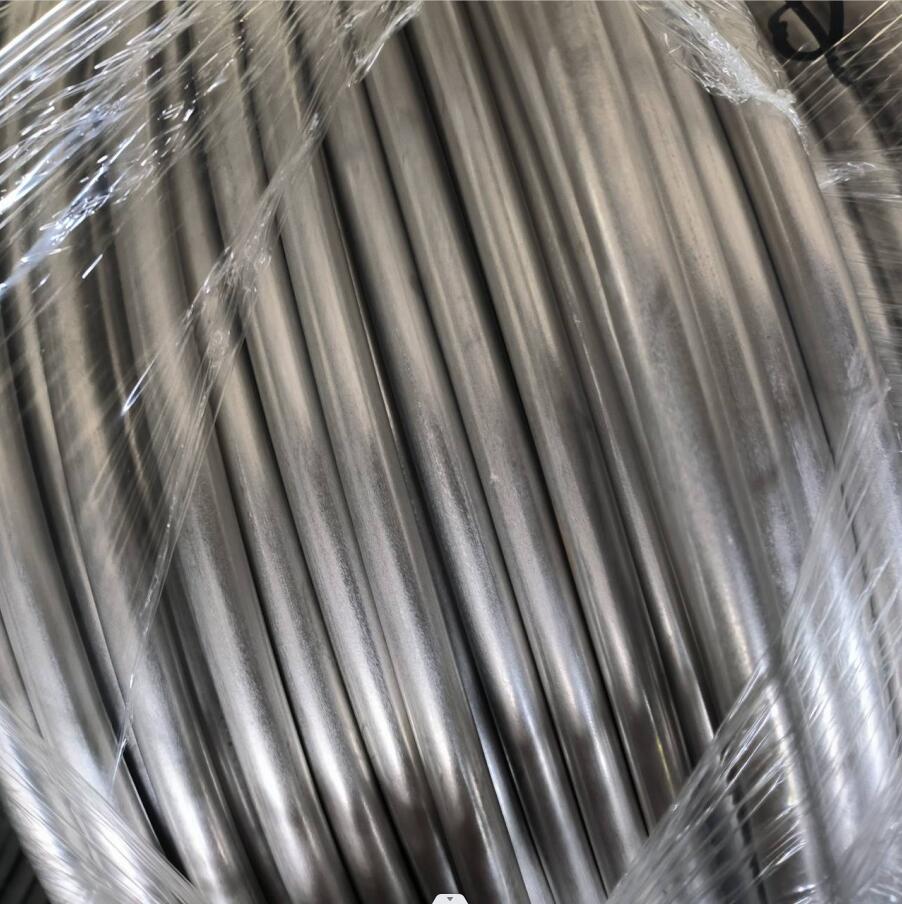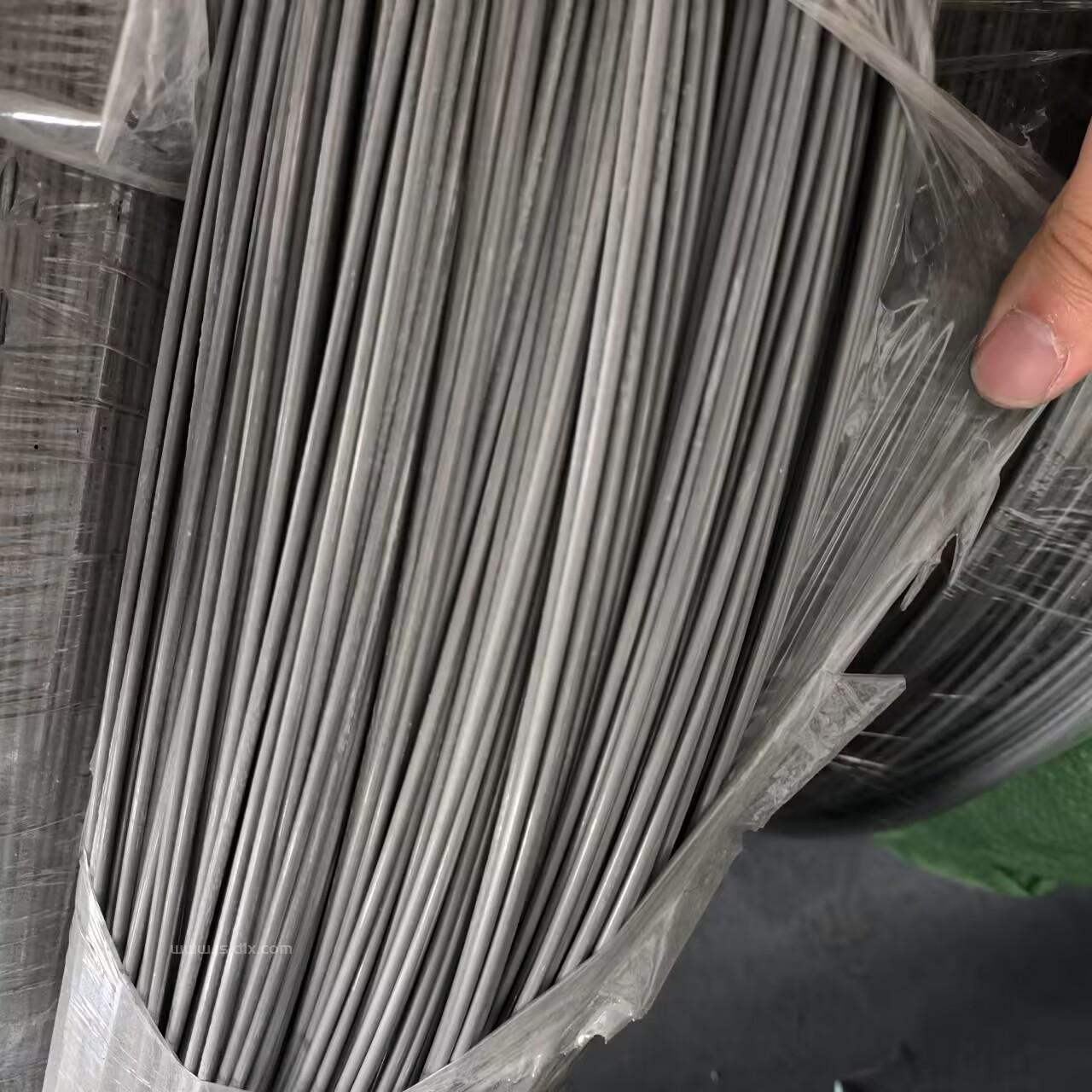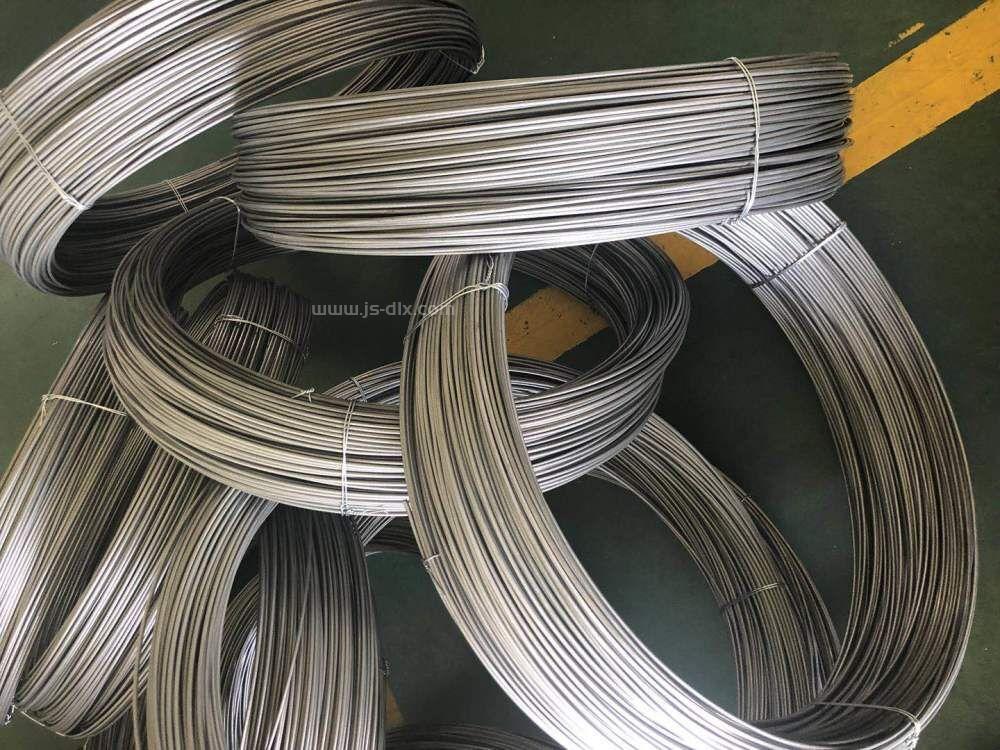Product Description
Inconel X750 wire is widely used in the fabrication of heat-treating fixtures because inconel x750 wire has excellent high-temperature properties. Inconel X750 wire Heat-treating fixtures are tools or assemblies used to hold or support parts during heat treatment processes, such as annealing, tempering, or hardening, where metals or alloys are exposed to extreme temperatures.
Inconel X750 wire is a kind of nickel-chromium alloys. Alloy X750 offers superior resistance to oxidation, corrosion, and scaling at elevated temperatures, which makes it ideal for use in these demanding conditions. It maintains its strength and stability even under thermal cycling, where materials are repeatedly heated and cooled. This ensures that fixtures made from Inconel X750 remain dimensionally stable and resistant to warping or degradation over time, leading to consistent, high-quality results in heat treatment processes. Furthermore, the wire form of Inconel X750 allows for the creation of complex fixture designs, providing flexibility for various industrial applications.
Chemical Component
| Model No. | Inconel X750 |
| Type | Nickel Alloy Wire |
| Density | 8.47 |
| Elongation | 2~5 |
| Technology | Cold Drawing |
| Melting Range | 1354-1413c |
| Tensile Strength | 1170-1520MPa |
| Yield Strength | 1035-1450MPa |
| Surface | Bright/Acid White/Oxidation |
| Transport Package | Carton or Wooden Box |
Application of Inconel X750
Inconel X750 wire is a versatile nickel-chromium alloy with excellent mechanical strength and corrosion resistance, especially at high temperatures. Here are some key applications:
1. Heat-Treating Fixtures
Inconel X750 wire is widely used for heat-treating fixtures due to its ability to maintain strength and resist oxidation at elevated temperatures. Its durability under thermal cycling makes it ideal for tools and assemblies that undergo repeated heating and cooling, such as furnace components, trays, and baskets.
2. Aerospace Components
Inconel X750 is used extensively in the aerospace industry for critical components, including:
Gas turbine engines: It is used in turbine blades, seals, and rotor components that must withstand extreme heat and stress during engine operation.
Rocket engines: It is used in fuel nozzles and other parts subjected to high thermal loads.
Aircraft structures: Landing gear, fasteners, and other parts benefit from its high-strength properties.
3. Nuclear Power Plants
In nuclear reactors, Inconel X750 is used in components such as springs, bolts, and seals that require resistance to heat, radiation, and corrosion. Its ability to maintain integrity in radioactive environments makes it valuable for control rod assemblies and other critical parts.
4. Extrusion Dies and Tooling
The alloy’s ability to withstand high stress and maintain structural integrity at elevated temperatures makes it suitable for extrusion dies and forming tools, particularly when dealing with metals that require high-temperature processing.
5. Test Machine Grips and Springs
Inconel X750’s excellent fatigue resistance makes it ideal for springs and grips in test machines, which are subjected to continuous stress. It ensures that these components maintain their performance over a long service life, even under extreme environmental conditions.
6. Pressure Vessels
Inconel X750 wire is used in the construction of high-pressure vessels, where it provides resistance to cracking, deformation, and corrosion, ensuring safety and longevity even in harsh chemical environments.
Overall, Inconel X750 is selected for its ability to combine high strength, corrosion resistance, and the ability to function in extreme temperature conditions.
Physical Properties
Density: 0.299 lb/in3, (8.28 g/cm3)
Modulus of Elasticity (E):
At 70°F (20°C): 31.0 x 106 psi (214 GPa)
At 1000°F (538°C): 26.7 x 106 psi (184 GPa)
Modulus of Rigidity (G):
At 70°F (20°C): 12.0 x 106 psi (82.7 GPa)
Coefficient of Expansion:
7.8 µin/in.-°F (70°F to 1000°F)
14.5 µm/m-°C (20°C to 538°C)
Electrical Resistivity: 20.1 µΩ.in, (122 µΩ.cm)
Thermal Conductivity: 83 Btu-in/ft2hr-°F, (12.0 W/m-K)
Applicable Specifications
Wire & Bar: AMS 5698, AMS 5699, AMS 5778, NACE MR0175 (ISO 15156-3), ASTM B637, AMS 5667, AMS 5668, AMS 5670
Typical Mechanical Properties– Spring Applications
1 Annealed
Heat Treatment: 2000 – 2200°F (1093 – 1204°C)
Tensile Strength:130 ksi max; (896 MPa) max
2 No.1 Temper
Heat Treatment: As supplied condition.
Tensile Strength: 130 – 165 ksi; (896 – 1138 MPa)
3 No.1 Temper + Aged
Heat Treatment: After spring coiling. Age: 1350°F (732°C) for 16 hours.
Tensile Strength: 165 – 220 ksi (1138 – 1517 MPa)
Suggested Operating Conditions: Optimum resistance to relaxation at temperatures up to 1000°F (538°C) with moderate or low stresses.
4 Spring Temper
Heat Treatment: As supplied condition.
Tensile Strength: 160 – 220 ksi; (1103 – 1517 MPa)
5 Spring Temper + Aged
Heat Treatment: After spring coiling. Age: 1200°F (649°C) for 4 hours.
Tensile Strength: 180 – 250 ksi; (1241-1793 MPa)
Suggested Operating Conditions: Optimum stress and low relaxation at temperatures up to 700°F (371°C)
6 Spring Temper + Solution + Aged (3 Step Heat treatment)
Heat Treatment: After spring coiling. Solution Heat Treat: 2100°F (1149°C) for 2 hours and air cool. Age Harden at 1550°F (843°C) for 24 hours and air cool. Reheat to 1300°F(704°C) for 20 hours and air cool.
Tensile Strength: 145 – 190 ksi; (1000-1310 MPa)
Suggested Operating Conditions: Optimum resistance to relaxation at temperatures in the range 1000 – 1300°F (538 – 704°C).
Packaging&Shipping
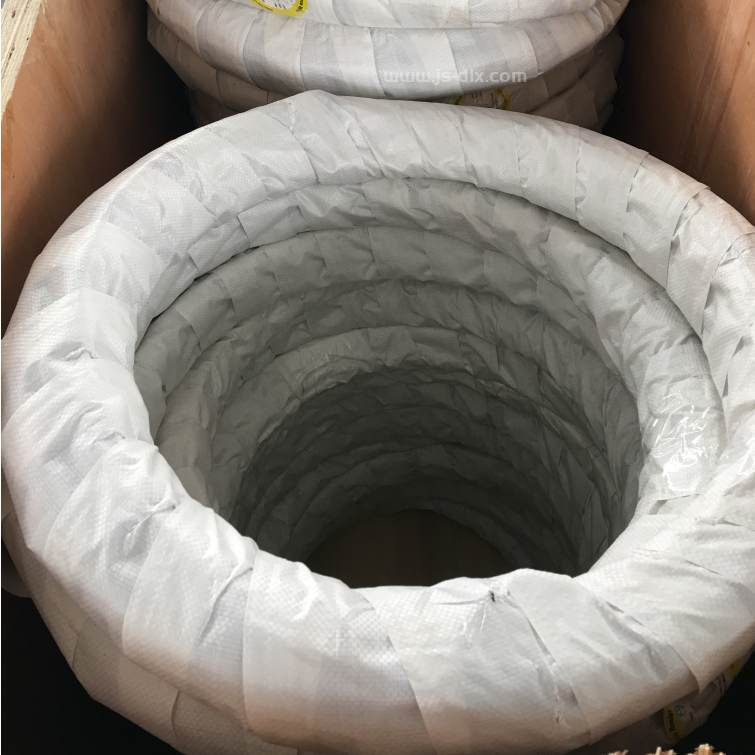
Company Profile
About CHANGZHOU DLX ALLOY CO., LTD
Founded in 2002, CHANGZHOU DLX ALLOY CO., LTD is a leading manufacturer specializing in the research and production of specialized alloy materials. Our factory has earned both the ISO9001 International Quality Management System Certificate and SGS Certification, affirming our commitment to high standards of quality.
We are experts in the entire alloy production process, including melting, drawing, heat treatment, finishing, and rigorous testing. Our product range includes nickel-based, copper-based, and iron-based alloys, such as super alloys, welding materials, anti-corrosion alloys, precision alloys, FeCrAl alloys, NiCr alloys, CuNi alloys, and thermocouples. These are available in various forms including wire, strip, ribbon, bar, tube, and plate.
